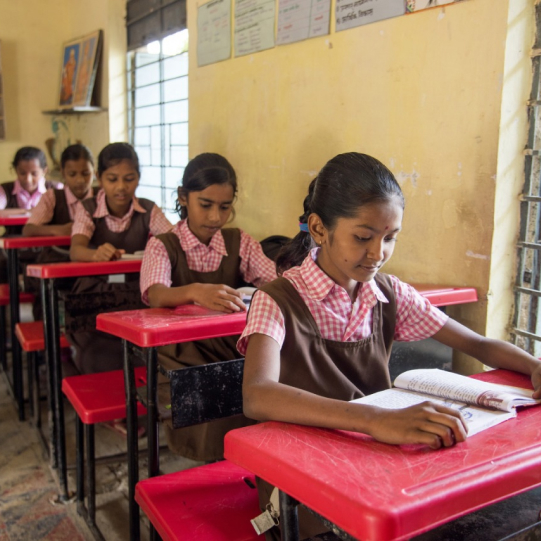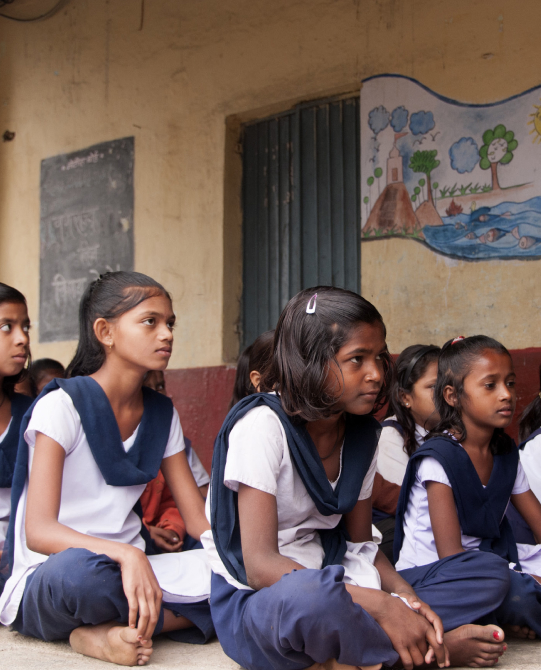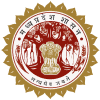The learning content for Numeracy and Literacy (English) is based on Universal Design for Learning (UDL), an inclusive paradigm that assists ALL students in improving their learning outcomes. We offer supplemental learning tools to help struggling kids as well as enrichment materials to excite and engage high achievers in the classroom.
Teacher Professional Development focuses on building capacity of the teachers to teach a diverse classroom through structured guided materials consisting of daily plans and activities. A robust teacher professional development framework and training build knowledge skills and attitudes of the teachers in a way that every last child learns.
The goal setting exercise is co-created with Government and NGO partners which is further aligned at district, school and child level. Summative and formative assessments are designed to ensure that children progress is being measured periodically. Sol's ARC works closely with our partners to develop monitoring and evaluation systems. These include data collection and analysis, monitoring visits and third party evaluations to ensure that the program delivers the desired outcomes.
TEACHING
Learning content in Numeracy and Literacy (English) - Based on Universal Design for Learning (UDL), an inclusive framework which helps improve the learning outcomes for ALL children.
TEACHER DEVELOPMENT
Focuses on building capacity of the teachers to teach a diverse classroom through structured guided materials consisting of daily plans and activities.
SETTING GOALS
The goal setting exercise is co-created with Government and NGO partners which is further aligned at district, school and child level.
EVALUATION
These include data collection and analysis, monitoring visits and third party evaluations to ensure that the program delivers the desired outcomes.
The learning content for Numeracy and Literacy (English) is based on Universal Design for Learning (UDL), an inclusive paradigm that assists ALL students in improving their learning outcomes. We offer supplemental learning tools to help struggling kids as well as enrichment materials to excite and engage high achievers in the classroom.
Teacher Professional Development focuses on building capacity of the teachers to teach a diverse classroom through structured guided materials consisting of daily plans and activities. A robust teacher professional development framework and training build knowledge skills and attitudes of the teachers in a way that every last child learns.
The goal setting exercise is co-created with Government and NGO partners which is further aligned at district, school and child level. Summative and formative assessments are designed to ensure that children progress is being measured periodically. Sol's ARC works closely with our partners to develop monitoring and evaluation systems. These include data collection and analysis, monitoring visits and third party evaluations to ensure that the program delivers the desired outcomes.


Our researchers developed insights into how humans learn and discovered that by optimisingteaching, an entire classroom can learn better. A classroom is divided into poor, average, and high performers. The majority of poor performers and average performers were polled, and these students were classified as having learning delays due to nutritional/health issues, disabilities, or gender bias.As a result, we created our own framework to support UDL (Universal Design for Learning).
The core UDL guidelines are to use a variety of teaching approaches (Engagement), provide accessible materials (Representation), and assess students in a variety of ways (Action & Expression).The teachers that we partnered up with would use the UDL framework to develop and deliver curriculum that would cater to each student's unique skills and needs, ensuring that all students have an equal chance of success.
In 2016, Sol's ARC was a part of India’s first ever Development Impact Bond (DIB) through our partnership with Educate Girls, an NGO working towards improving life outcomes for girl child. The objective of the Bond was to increase the learning outcomes in literacy and numeracy for children in Grades 3 to 5. The project reached out to 166 schools, 15,000 children across 140 villages in the district of Bhilwara, Rajasthan. In the first year of the project, the data showed that over 60% of the children faced learning challenges, and that with the existing pedagogy, they would be unable to reach target outcomes. Sol's ARC developed an inclusive learning pedagogy through a kit called 'Gyaan ka Pitara' and designed the training programs.
We worked closely with the team from Educate Girls and kept tweaking the content as well as the training through learnings from ground experiences. After 2 years of interventions, the results achieved were extraordinary. In the first year of the project, they recognized that over 60% of the children suffered from learning challenges and gaps, and that with their existing pedagogy, they would be unable to reach target outcomes.
A rigorous third party RCT (Randomized Control Trial) showed that the project surpassed all targets with 160% overall improvements in learning outcomes and 79% against the control group which is equivalent to 1 year of additional learning. The program has since scaled to over 2,00,000 children in Rajasthan, Madhya Pradesh and Uttar Pradesh and continues to show significant gains for the most vulnerable children in these states.

We implement solutions through collaborative partnerships with government, NGOs and bi-lateral agencies.
NGO Partners
Changeinkk, SCERT, Nagaland
Akanksha Foundation
Rajya Sikhsha Kendra
Educate Girls
Teach for India
Educo
ATMA
Go Dreams
CHIP
Anandi
Little Hearts
Jai Vakeel
Spark a Change
Government Partners

